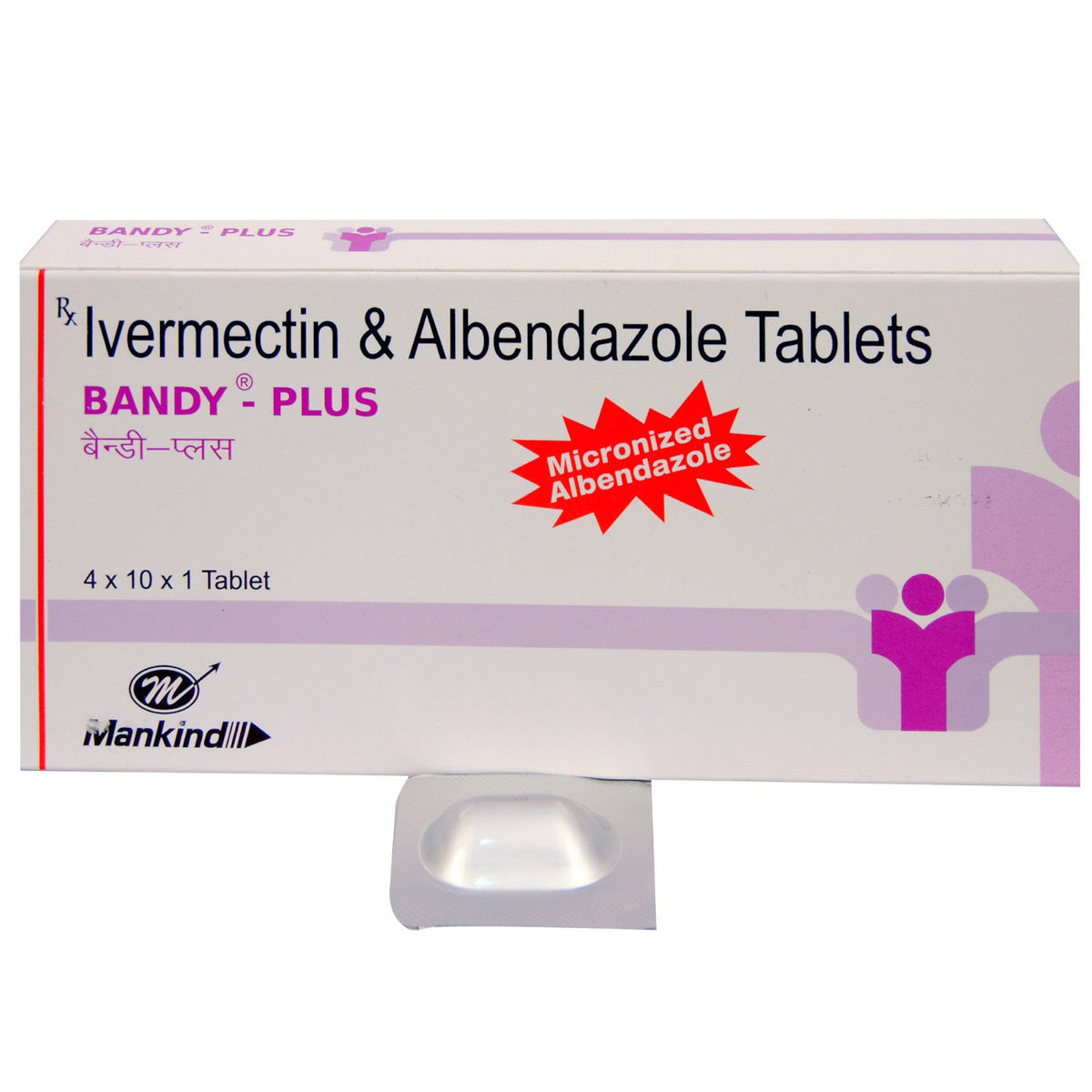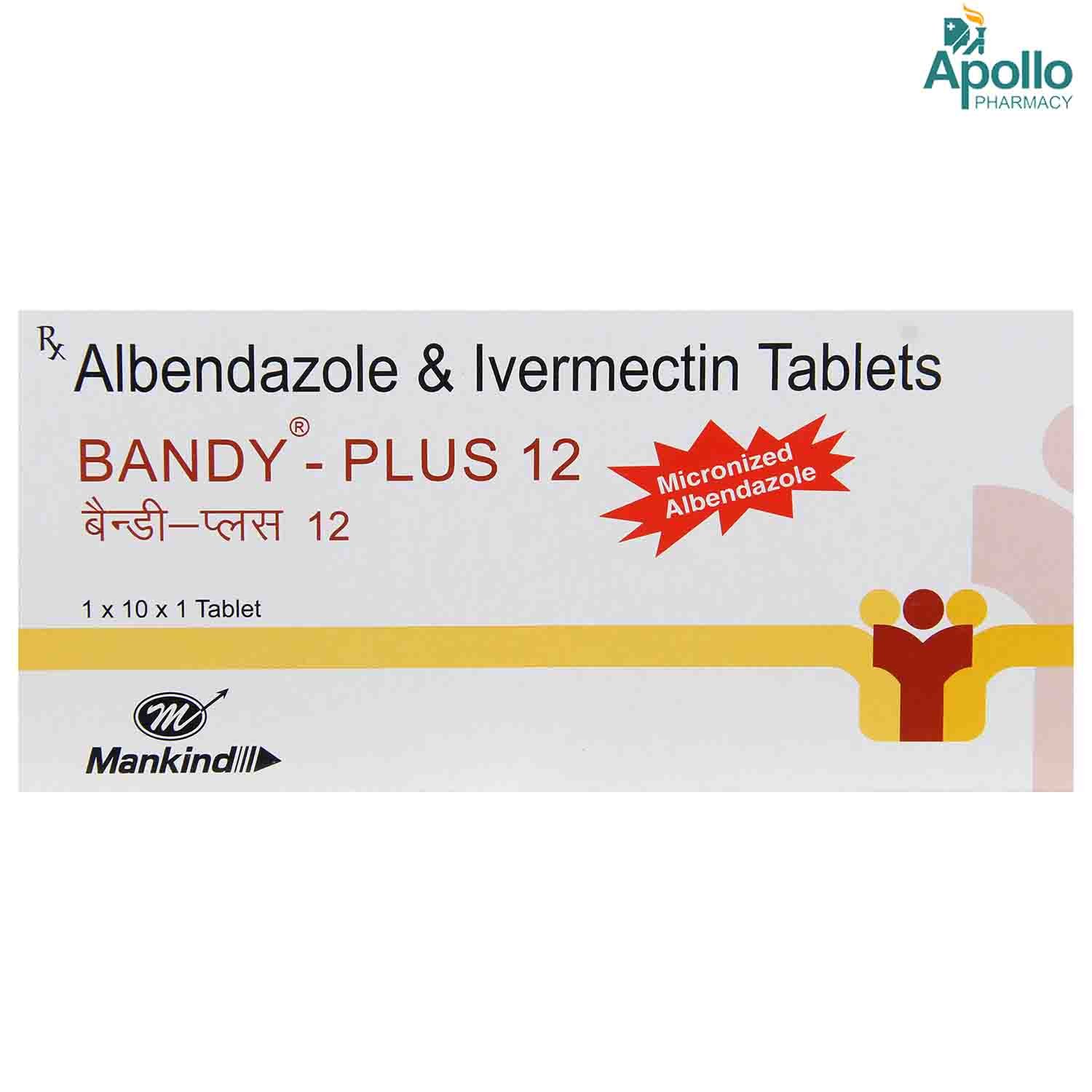Albendazole+ivermectin
About Albendazole+ivermectin
Albendazole+ivermectin belongs to the class of medications called ‘antihelmintic’ used to treat parasitic worm infections. Parasitic worm infections are intestinal worm infections that are caused by the ingestion of contaminated food and water. Albendazole+ivermectin can be used to treat infections caused by roundworms, hookworms, threadworms, whipworms, pinworms, flukes, and other parasites.
Albendazole+ivermectin contains ‘albendazole’ and ‘ivermectin’, which work by keeping the worm from taking glucose and depleting its energy levels, leading to its immobilization. Ivermectin can kill the parasites by acting on the nervous system. It starves the worms by inducing paralysis, consequently leading them to death.
You should take this medicine as prescribed by your doctor. The common side-effects of Albendazole+ivermectin are stomach pain, nausea, vomiting, headache, dizziness, decrease in white blood cell count (leucopenia), vision problems, confusion, weakness, and difficulty walking. Inform your doctor if any of these side effects persist or get worsen.
You should not take Albendazole+ivermectin if you are allergic to ‘albendazole’, ‘ivermectin’, or any other ingredients present in it. Before taking Albendazole+ivermectin, inform your doctor if you have a medical history of meningitis, African sleeping sickness (an infection caused by the bite of tsetse fly in African countries), or illness that weakens the immune system HIV. It may make you more prone to infections, so maintain proper hygiene. It may cause dizziness, so refrain from activities that require you to stay alert.
Uses of Albendazole+ivermectin
Medicinal Benefits
Albendazole+ivermectin contains ‘Albendazole’ and ‘Ivermectin’, which belong to the class of medications called ‘antihelmintic’. It is a broad-spectrum antibiotic used in the treatment of parasitic infections. It can kill the disease-causing worms and stop the spread of infection effectively. Albendazole interrupts the absorption of glucose by the worm leading to energy depletion. Ivermectin acts by paralyzing the worms, consequently leading them to death.
Directions for Use
Storage
Side Effects of Albendazole+ivermectin
- Stomach pain
- Nausea
- Vomiting
- Headache
- Dizziness
- Decrease in white blood cell count (leucopenia)
- Vision problems
- Confusion
- Weakness
- Difficulty walking
Drug Warnings
Albendazole+ivermectin may cause suppression of the bone marrow and cause anaemia. Inform your doctor if you have/had liver disease; if you have any surgery, including dental surgery. Consult your doctor immediately if you experience seizures, extreme tiredness, behaviour changes, blurred vision, trouble walking, or neck pain while taking Albendazole+ivermectin. Consult your doctor if you notice unusual bleeding or bruising as you may bleed or bruise easily while taking Albendazole+ivermectin. It may cause orthostatic hypotension (dizziness upon rising up quickly), so avoid standing up too quickly from a sitting or lying position.
Drug Interactions
Drug-Drug Interactions: Albendazole+ivermectin may interact with sedatives (phenobarbital and butalbital), anti-anxiety drugs (clonazepam, clozapine, and lorazepam), narcotic (sodium oxybate), a medication used to treat epilepsy (valproic acid), anthelmintic (praziquantel), corticosteroid (dexamethasone), antacid (cimetidine), anti-asthma (theophylline),
Drug-Food Interactions: No interactions found.
Drug-Disease Interactions: Albendazole+ivermectin should be used with caution in patients with myelosuppression (bone marrow suppression), hepatobiliary dysfunction (liver and biliary disease), neurological disorder, meningitis (inflammation of the membranes of brain), sleeping sickness, HIV, and kidney dysfunction.
Drug-Drug Interactions Checker List:
Safety Advice

Alcohol
cautionAlbendazole+ivermectin may interact with alcohol and worsen the condition.

Pregnancy
unsafeAlbendazole+ivermectin is a category C drug and may cause toxic effects to the unborn baby. So, your doctor may prescribe this medicine if the benefits outweigh the risks.

Breast Feeding
cautionAlbendazole+ivermectin may get excreted in the breast milk. So, your doctor may advise you to stop breastfeeding while taking this medicine.

Driving
cautionAlbendazole+ivermectin may cause dizziness and vision problems, so refrain from driving or operating heavy machinery while using this medicine.

Liver
cautionAlbendazole+ivermectin should be used with caution in patients with liver diseases. Dose adjustments may be necessary.

Kidney
cautionAlbendazole+ivermectin should be used with caution in patients with kidney diseases. Dose adjustments may be necessary.

Children
safe if prescribedAlbendazole+ivermectin should be used in children only if clinically needed.
Habit Forming
Diet & Lifestyle Advise
- Wash your hands regularly with soap and water, especially after using the toilet and while eating.
- Avoid eating raw fish and meat.
- Thoroughly cook meat before eating.
- Wash all fruits and vegetables properly before consuming them.
- Wash or reheat food that has been around for a long time.
- Avoid contact with soil that may be contaminated with faeces.
- Avoid foods that have been kept open in the markets as they can be contaminated.
- Drink boiled and purified water.
Special Advise
Get up slowly and rest your feet on the floor for a few minutes before standing up to avoid orthostatic hypotension.
Patients Concern
Disease/Condition Glossary
Parasitic worm infections: Parasitic worms are also called intestinal worms or helminths. They live in and feed on the hosts leading to weakness and diseases. Common types of intestinal worms are roundworms and flatworms such as tapeworms and flukes. Worm infections could occur due to consumption of contaminated water, food, or soil, contact with contaminated faeces, poor sanitization, or poor hygiene. Symptoms of worm infections include abdominal pain, diarrhoea, nausea, vomiting, gas, bloating, fatigue, unexplained weight loss, and dysentery (bloody stools).
FAQs
Albendazole+ivermectin is a combination of two antihelmintic drugs 'albendazole' and 'ivermectin'. It is used to treat a wide range of parasitic infections. It kills the parasite by keeping it from utilizing glucose and depleting its energy levels. It also paralyzes the insect, thereby leading it to death.
Albendazole+ivermectin usually improves your symptoms within 2 to 3 days after taking this medicine. however, you have to complete the course of therapy as prescribed by your doctor. If there is no improvement in your condition even after completion of the course, consult your doctor immediately.
Albendazole+ivermectin may cause vision problems such as blurred vision. Consult your doctor if your vision problem affects your daily activities.
Albendazole+ivermectin is not an antibiotic. It is an antihelmintic medication used to treat parasitic worm infections in the stomach and intestine.
You may require regular monitoring of blood cell count and liver function during treatment with Albendazole+ivermectin. Albendazole+ivermectin might increase the chances of getting an infection, so maintain proper hygiene, and try to stay away from people with infections, flu, or cold.
Common symptoms of intestinal worms are stomach (abdominal pain); diarrhoea, nausea, vomiting; gas formation, bloating; fatigue and unexplained weight.






